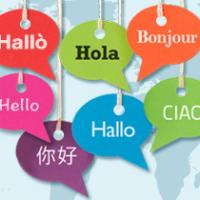Language Differences and the Challenge of Communication

Miscommunication happens all the time. The miracle, though, is not how often we miscommunicate, but how well we communicate given the multitude of ways we can misunderstand each other. This is especially the case when we communicate across international boundaries with people for whom English is not a first language.
For example, in English, we change the verb to indicate the tense, so we’d say “I worked on the project” to indicate the past tense. By contrast, some languages change not just the tense, but the gender of the person who worked on the project. Some languages adjust the verb according to how the information was acquired; for example, you’d use one form of verb if you saw the person working on the project and another form if you were reporting what you heard from a colleague. And some languages use the same form of verb for past, present, and future, and use other words, such as yesterday, to indicate the time frame. It’s not difficult to imagine how such differences can lead to misunderstandings.
Interestingly, some languages have features that we lack in English and that could add clarity to our communication. For example, if your coworker interrupts you and says, “We have a problem,” does “we” mean he and you, he and his team, everyone in the department, or something else? To find out, you need more information. But some languages have words to clarify what “we” means, so you know from the start.
There’s also the matter of emphasis, something normally missing in electronic communication. For example, consider the sentence
“I never said I fixed that bug.”
Now, say that sentence with the emphasis on the first “I,” then repeat it with emphasis on “never,” and so on with emphasis on each word in the sentence. You’ll get seven different emphases—and seven very different meanings. In the absence of italics or bold type, the recipients of a message can easily misinterpret what the sender intended.
Maybe, instead of bemoaning all the times we get mired in a miscommunication, we should appreciate the much larger number of times we manage to communicate successfully. Truly, it’s amazing that we ever understand each other at all.

